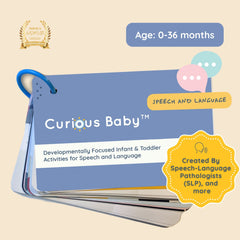If you were anything like me as a new parent, you thought your newborn would sleep all the time, day and night. They’d go to bed easily and nap for hours at a time, right? WOAH was I wrong! As a newborn and young infant, my son would not fall asleep for naps and got stuck in a constant overtired cycle which made it impossible to get him to fall and stay asleep.
Fast forward to when he was 3 months old when I had my first consult call with a sleep coach. I’ll never forget when she said, “He should only be awake for 60-75 minutes before going back down for a nap”. I had ZERO clue about wake times and once I started following an age appropriate schedule, the nap and bedtime struggles got a lot easier!
So, let’s talk about ways you can create a sleep schedule for your baby.
How to get started creating a sleep schedule
Follow Age Appropriate Wake Times and SchedulesAs much as parents would like to set their children’s schedules, I’m here to break the news that babies’ sleep schedules and rhythms are predisposed based on age and circadian rhythms.
You can’t force them onto your schedule. So, as a starting point, you can the below wake time and nap guide based on your baby’s age.

Please note, this is a generic sleep guide to help *most* families. Remember that each baby will have individual, specific sleep needs and your situation may be more complex. A pediatric sleep coach can work with your family to track and analyze you individual baby’s sleep needs to make it easy and simple for you.
Set the stage
To encourage a healthy sleep schedule, your baby’s naps should take place in a consistent sleep environment. The best and more restorative naps take place on a flat surface, a bassinet or crib, and in a room that is DARK and cool.
Let me get on my dark room soap box, I’m talking DARK people, you shouldn’t be able to see your hand when the lights are off, and blinds are closed on the brightest of days.
Any bit of light that comes into the room during sleep and hits your baby’s eyes can stop melatonin production (the sleepy hormone).
These are my absolute favorite blackout shades, they cover the entire window. A white noise machine is critical to helping block out daytime sounds and it also helps to mimic the sound of the womb.
Set your expectations
Naps and overnight sleep take time to consolidate and become regular. Naps typically consolidate between 4-6 months on average.
Typically, the first nap of the day is the first one to extend. Sleep, especially independent sleep, is a hard skill to learn. Your baby was likely held or assisted to fall asleep for the first few months of life. And that’s okay! But when you start to work on a schedule and naps, don’t give up if, after a few days, it may feel like you’re not getting anywhere. Getting on a good, consistent schedule can take weeks and that's perfectly okay. Keep consistent though, it will pay off in the end.
Your baby might have a great nap one day, but not the next—and that’s normal. Continue to give your little one the opportunity. You’ll may see progression, but, as with all milestones, it’s can sometimes feel like two steps forward, and one step back.
When you're having a tough nap day, remember that you're teaching him a hugely important skill in life: sleeping! It can take time. Remember to not compare your baby to others or the babies of your friends. Each child is different, and each reaches different sleep milestones at different times. You're doing a great job as a parent and we're proud of you for all the work it's taking to figure out how to get baby on a consistent schedule.
And finally, feeding plays a huge role with sleep. Ensure your baby is getting the appropriate number of feedings or ounces for their age. Just like sleep, a baby's feeding needs are individual and specific. If you are following a feed schedule and you’re finding that your baby is hungrier then you may need to rethink the number and timing of feeds your offering your baby! When in doubt, talk to your pediatrician about feeding requirements.
Common Mistakes to Avoid
Keeping baby up too long!
We've all heard it. "If you keep your baby up longer, they will sleep longer!" While it may seem logical, it actually tends to backfire. Keeping your baby up past their recommended wake times can cause your baby to get severely overtired and they may even get to the point where they can’t fall asleep at all. And/or or can cause multiple earlier-than-normal wake ups.
Going against baby’s natural rhythm
I’ll say it once, I’ll say it again, sleep needs and times are predisposed based on age. Don’t go against those natural rhythms. If you have tried following wake times and a schedule is just not happening, call in the experts and let us help.
It's worth the work
While becoming a parent with an infant or toddler on a 'schedule' may seem like an overwhelming task at first, it will pay dividends for your peace of mind and stability of the day. If you have family or friends coming to visit you, you'll be able to tell them exactly when baby will be awake and when they will be asleep. It's a wonderful thing, but it takes a lot of time and practice (and those first few weeks when you bring your baby home from the hospital are just too soon to get on a schedule, so take a deep breath).
With consistency and focus, you'll be able to transition your baby to the right schedule for their age and if you need more specialized help, reach out to Molly for a consult.
Are you struggling with newborn sleep as a first-time parent? Let us know the biggest challenge and/or what's been the most helpful for you in the comments below!
 Molly Leighton is a wife, toddler mom and a certified pediatric sleep coach who solves sleep issues and deficiencies for children of all ages. She creates customized sleep plans based on your child's own set of unique developmental considerations and restore sleep to your entire family with a science-based approach. Visit her website, on facebook, and follow her on Instagram.
Molly Leighton is a wife, toddler mom and a certified pediatric sleep coach who solves sleep issues and deficiencies for children of all ages. She creates customized sleep plans based on your child's own set of unique developmental considerations and restore sleep to your entire family with a science-based approach. Visit her website, on facebook, and follow her on Instagram.








1 comment
Instead of a total of necessary sleep, it was more helpful to me to see a chart of typical wake times based on age (ex. X months old needs to sleep after 1-1.5hrs). I can’t find the link at the moment but once I learned to start trying to put little one down after an hour? Life changing for both of us. Making sure to actively “nap” my baby was the single most impacting piece of information I’ve ever learned. No one tells you! You just have to stumble over an article on the internet. Lol.
Leave a comment